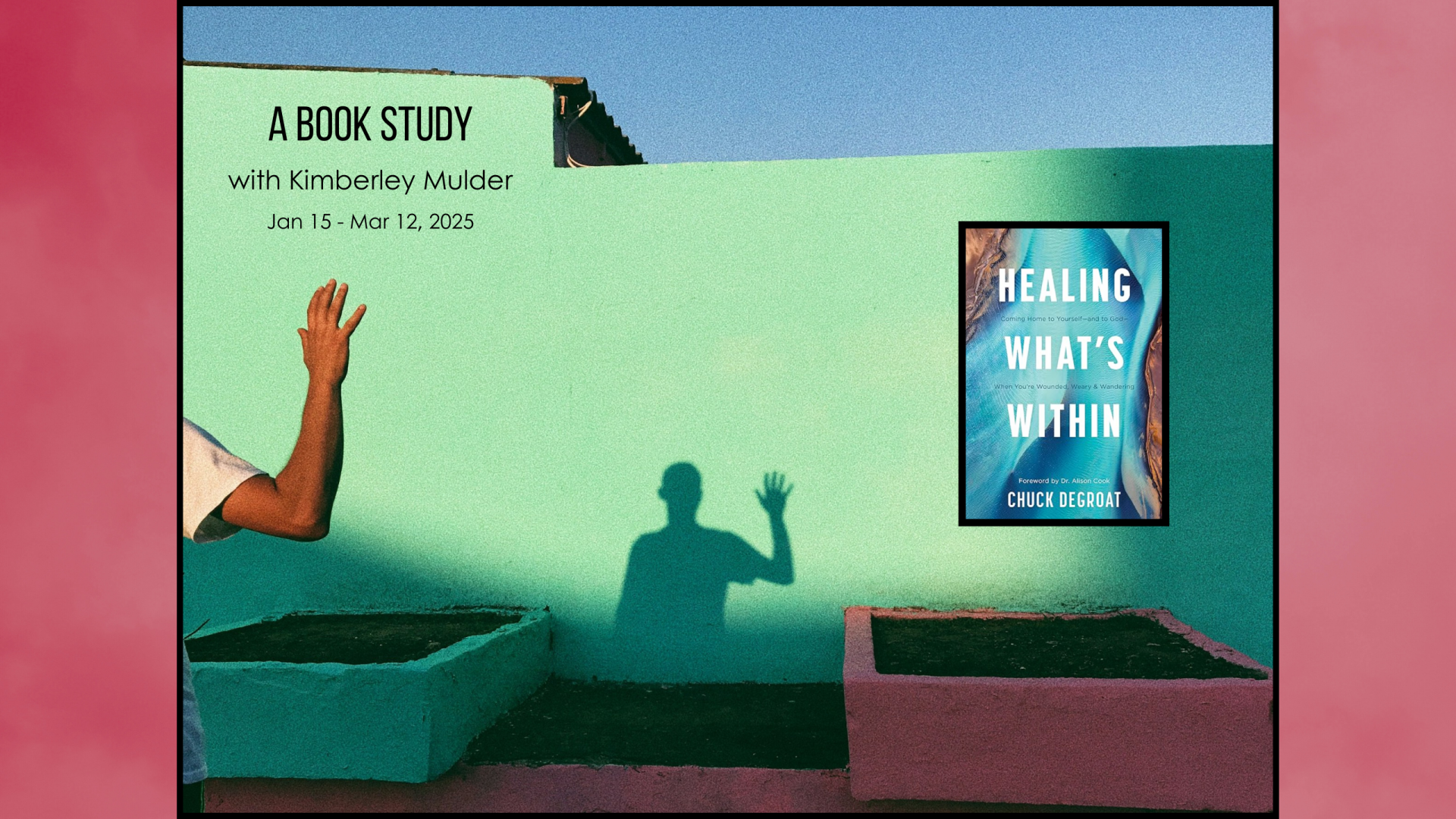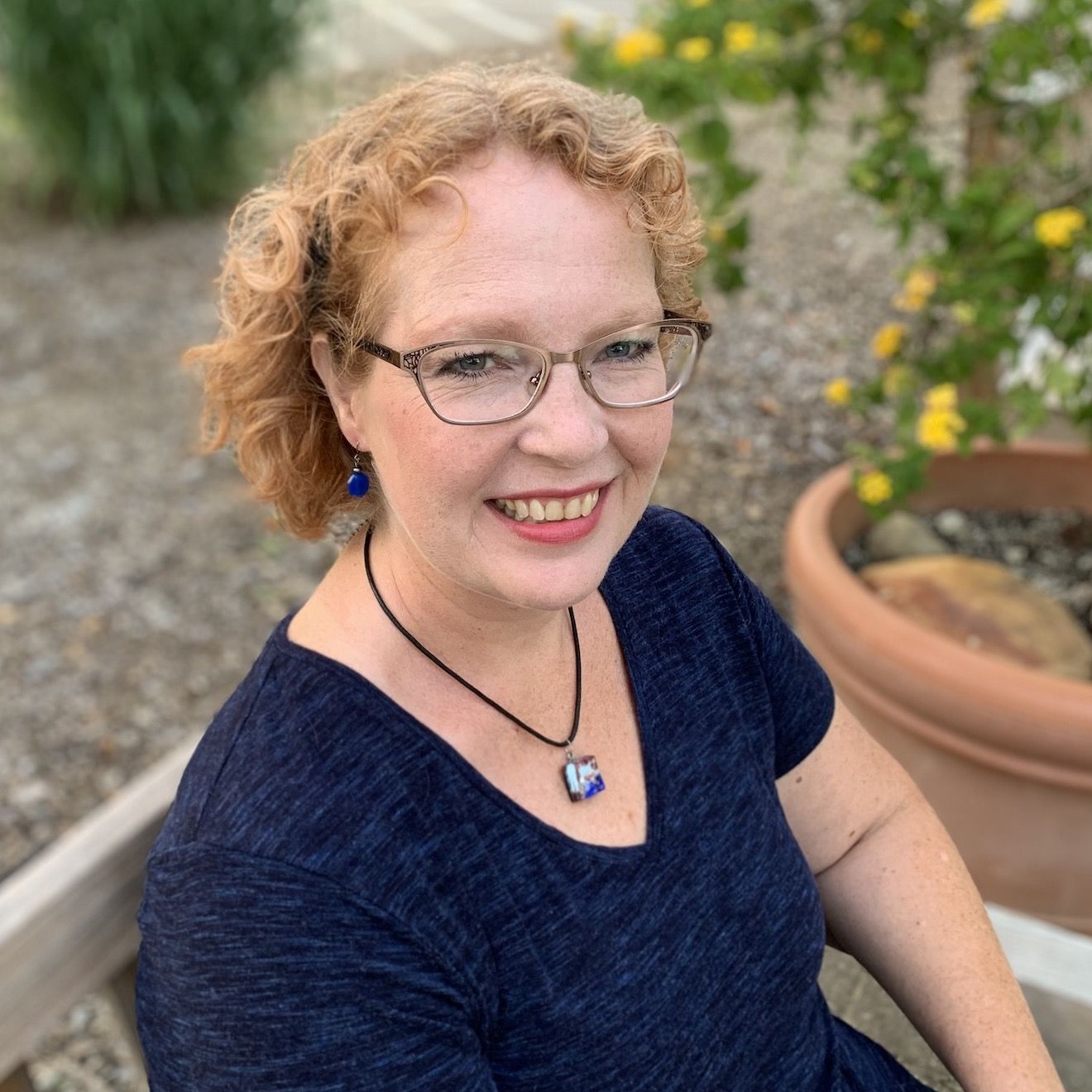Book Review: Healing What's Within Coming Home to Yourself—and to God—When You're Wounded, Weary & Wandering

I picked up this book because I appreciate Chuck's sharing on social media. It resonated with my desire to heal from some wounds I carry, and I'm always on the lookout for ideas and practices that will assist my companioning others in their spiritual journeys. Chuck's work exceeded my expectations, and I want to share this resource with you!
Addressing the disconnections within us caused by the lack of empathetic witness amidst the wounds of life (our traumas), he discusses and demonstrates theologically, neurobiologically, and practically how God has provided a way Home to connection through compassion. I appreciated the way he wove together personal story, Biblical interpretation (especially around our images of God), history, therapeutic modalities, and spiritual formation together. The result is a well-grounded, understandable framework upon which we can then engage in reflection and prayer practices that support healing what's within.
The framework is built to explore and explain what he's coined, the Genesis Examen. He begins with God's question in Genesis 3 to Adam and Eve: "Where are you?" Immediately, he names how our image of God will directly affect how we hear this question, and he leads us to hear God's loving care asking us, not shame. It is an invitation back into connection, back to our original worth, purpose, and belonging. In the caring attention of God, can you name your feelings, wounds, weariness, and wandering?
"'Where are you?' invites you to pay attention to what's happening within, to attend to the storms that churn and the fog that dulls, disorienting and disconnecting you." (23)
"'Where are you?' God asks, a kind move toward you amidst your self-protective, porcupine-like posture. God doesn't want you to be alone in your suffering." (44)
Chuck uses reflection questions, stories, and paying attention to your body to find out where you are. He identifies loneliness in all its guises as a symptom of disconnection and names how this affects our spirits and actions. Grounding awareness in our bodies, he helpfully guides us in paying attention, learning our bodies' cues, and following them to connection. I loved how he pulled in recent work on our neurobiological connection to our bodies and how shame works within our physical systems from people like Gabor Maté, Curt Thompson, and Bessel Van der Kolk. But he also draws from the wisdom of people like St. Teresa of Avila, St. Augustine of Hippo, and King David.
The second question of the Genesis Examen is, "Who told you?" This question invites us to consider what the suffering part of ourselves believes based on embedded experiences, attachment styles, and ingrained habits. Using an imaginative contextualization of King Hezekiah's life situation, Chuck demonstrates how our earliest stories are ingrained viscerally, and how God is drawing us out of them into coming home to him. After explaining attachment theory (in an easy-to-understand way) and sharing vulnerably of his own healing, Chuck gives us the practice of saying hello to parts of ourselves we've hidden away so that we can hear their voices and approach healing. The last chapter of this section deals with the fact that we often carry stories in our genes that we know little to nothing about, that there is a mystery in the origins of our suffering. He honors this, offering us ways of acknowledging and carrying this truth.
The final question of the examen is "Where have you taken your hunger?"—a helpful interpretation of "Have you eaten from the tree?" This question invites us into honesty about our coping and addictions as we try to orient in our states of storm or fog. God is trying to regulate us, to help us find our footing. In this section, I discovered my favorite chapter on the Dark Night of the Soul. In it, he elucidates how to recognize this spiritual state and names our natural reactions to it.
He identifies that,
"The gift of the dark night is that it dulls the enjoyment of our coping mechanisms, it robs our small-g gods of their power, it turns off the power to our self-satisfying salves." (178)
Using his experience to demonstrate, he guides us through the agonies and discoveries of the dark night. He also gives special attention to the way we can hide from it by dressing up in religious clothes to cover it.
DeGroat brings us all home in the last chapter as he weaves the compassion of God through the questions he's posed, the ways we can participate in healing connection, and leaves us grounded in hope.
I plan to continue using each chapter's reflection questions and practices to tend to my own coping and disconnection. As a spiritual director, this book equips me to better understand and hold a compassionate space for others' healing and returning home. I highly recommend it!
Join me in January 2025 for a 9-week book study, we will read, reflect, and companion each other toward our own inner healing which, in turn, equips us to guide and companion others on their journeys toward connection and healing. Each week we will read one chapter on our own and apply the questions and practices Chuck included. When we gather we will discuss the ideas he presented and how we identify with or resist them. Because healing occurs in the midst of compassionate connection, this book is best studied in a group committed to holding sacred space for each other.
In January, Kimberley is offering an in-depth book study and community in which to heal what is within you. If you'd like to join us, sign up here.

A Spiritual Director, retreat leader, and writer, she notices the Trinity’s movement and seeks to follow this light with you.She received her Master’s of Divinity and Spiritual Direction Certificate from Portland Seminary and works at the Dominican Center, a spiritual formation ministry in Grand Rapids, Michigan.
Her family of five lives halfway between Lake Michigan and Grand Rapids, perhaps indicative of how Kimberley finds God in and inhabits the in-between spaces.
Instagram @writerkimberleymulder
Facebook @kimberleymulderwriter
Online, her presence and practice is hosted at https://www.kimberleymulder.com

